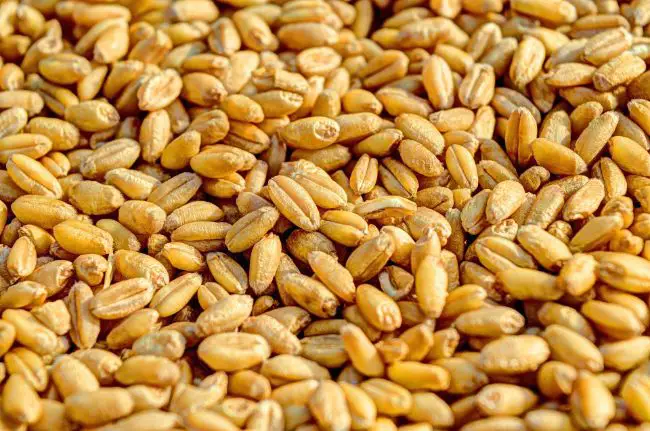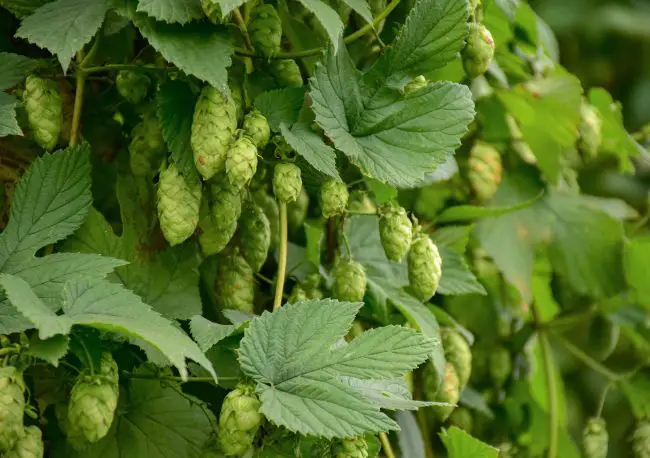Many of us who are eco-friendly and health-conscious always prefer to go for organic foods and drinks. Of course, that carries over to beer.
Although organic beer has been available for decades, many amateur brewers and beer enthusiasts remain oblivious to its unique characteristics.
It’s natural to ask if beer made using organic ingredients and techniques is really superior. And if so, what are the best organic beer brands out there?
Well, it looks like you’ve stumbled upon the right article. We’re going to define what makes beer organic and which brewhouses produce beers that align with your principles. Let’s get started.

What Qualifies As Organic Beer?
Organic beers are those brewed with methods and ingredients that have been certified as organic by the relevant authorities. In this case, the USDA is responsible for defining the term.
Most organically certified beers will proudly proclaim the status on the bottle or can they come in. There is no guarantee that organic beer is healthy or has a better flavor than any other type of beer, though.
Here are the standards that brewers must meet to earn and maintain their organic classification:
1. They have to prove that they use only organic ingredients.
Breweries are required to provide proof of the exact percentage of organic ingredients used in each certified batch of beer. Requirements are based on the specific certification being claimed.
Additionally, the organic ingredients must be certified as pesticide- and chemical-free.
2. They have to use organic-certified equipment.
Brewing organic beer requires verification of even the equipment utilized. Brewers can do this by dedicating certain pieces of equipment to the production of organic beers exclusively.
They could also clean the equipment between uses with a purging or cleaning method that has been deemed suitable by the relevant authorities.
When making the transition from conventional to organic brewing, it is necessary to “flush the system” with organic matter.
3. They have to be inspected annually.
At the very least, breweries should be inspected once a year to make sure they’re following all the rules for producing organic beer. They are also open to unannounced checks.
These are separate from regular health inspections and serve solely to ensure conformance with the additional standards for their special organic certification.
If a brewery fails this inspection, it will lose the right to use the organic logo on any of its products until it can reapply for certification.
Are Most Beers You Can Buy Organic?
No. The great majority of beers on the market are not organic due to the higher average cost of organic ingredients and the added cost of certification. This holds for both craft beer and commercially brewed beer.
Here are some reasons why most breweries don’t produce organic beer:
Higher Cost
Brewers incur a hefty annual cost for organic certification, which usually results in higher beer pricing.
An added investment in equipment may be required, on top of the fee associated with certification.
More Complex Production
It can be inefficient to produce organic beer since the ingredients must be kept separate from those used in conventional beer.
It’s Not A General Preference of Consumers
There may not be a large market for organic beer in the areas where a brewery primarily sells its products.
Consequently, this may render the process of organically certifying a beer to be too costly or time-consuming.
Discover and consider sampling these Swiss beer brands.
Is Organic Beer Generally Better Than Regular Beer?
Organic certification does not guarantee that a beer is of high quality. Conversely, not all conventional beer is inferior to organic beer. It’s not hard to find a conventional beer that’s just as good as an organic one.
Some breweries may even use organic ingredients in their beer but not shell out the cash for the required annual organic certification to display the label on their cans!
Does It Mean It’s Healthier Because It’s Organic?
We’ve been led to believe that organic food is automatically better than regular food. This isn’t always the case, as a standard salad is still probably better for you than organic potato chips.
There is some speculation that the digestive system may have an easier time handling organic beers because fewer ingredients are treated during their production.
But please don’t think you can down an entire case of organic beer without feeling any regret! The adverse effects of alcohol are present in all alcoholic beverages.
Best Organic Beer Brands

Now that we know what it takes for a beer to be labeled as organic, let’s list some of the best organic brewhouses.
Lakefront Brewing
Lakefront Brewery provides a large selection of brews for those who value having options, including organic, non-organic, and gluten-free beers.
Lakefront’s origins can be traced back to two brothers with a deep appreciation for the brewing process and a burning passion for making something truly their own.
This brewhouse was founded by Jim and Russ Klisch in 1987. Since then, the brewery has been well-known for its innovative beer varieties.
Eel River Brewing Company
With a tagline like “Be natural, drink naked,” you can tell the Eel River Brewing Company is all about staying simple.
The brewery, which was established in 1995 in Fortuna, California, became a certified organic brewery in 1999. It is now situated in Scotia, California, in a building that formerly housed a lumber mill.
All of the energy required to brew the beer in Scotia comes from mill wastes, including wood chips, bark, scrap lumber, and clippings.
So, the company not only produces multiple award-winning beers (including a California Blonde Ale) but also considers its environmental impact.
Peak Organic Brewing Co.
Peak Organic Brewery’s goal is to raise awareness of the use of organic, locally sourced ingredients.
Its founder, Jon Cadoux, was a true pioneer in the field of organic beer. Drinking a beer from this Portland, Oregon, brewhouse is like receiving a dose of positive energy.
The Evergreen IPA, a robust beer brewed with juniper berries and spruce in addition to hops for a distinct flavor, is undoubtedly their best seller.
But if you’re looking for something a little lighter to sip on a Friday night, try the cheerfully called Happy Hour.
Pinkus-Muller Brewery
Pinkus-Muller, with its rich history and commitment to quality, is one of the top organic breweries in the world.
The fact that it has been run by the same family for so long, with the same secret recipes meticulously maintained from one generation to the next, is also impressive.
Try Pinkus’s organic altbier (old beer), especially the unfiltered variety that retains the original German inventiveness that gives the drink its distinctive flavor.
Butte Creek Brewery
Butte Creek Brewery is an excellent organic beer producer despite its somewhat funny moniker.
They earned their spotless reputation because their goods are safer for people and the planet and contain no harmful chemicals.
This is because all of their delicious beers, including an organic version of the traditional Pilsner, are made with solely organic barley and hops.
The standard IPA and Porter are also available, allowing you to drink your preferred style in its purest form.
Wolaver’s
Since 1997, Wolaver’s has been producing organically certified beer. The witbier, a delicious white beer brewed in the Belgian tradition, is available from May to September and is the perfect way to usher in the colder months.
Stone Mill
Green Valley Brewing Company, an Anheuser-certified Busch’s organic brewery, produces and sells Stone Mill Pale Ale, which is brewed entirely using organic barley malt.
Samuel Smith
This English brewery is well-known for its Nut Brown Ale and Imperial Stout, but they also produce organic brews.
Does Organic Beer Make A Difference In Taste?
In most cases, there is no such thing as an “organic flavor.” Hops, malts, and other standard ingredients found in conventional beer are still used in organic products since organic products are merely prepared with ingredients that have been certified as such.
Beers brewed with organic ingredients might have a “cleaner” flavor than their conventional counterparts because fewer processing steps are involved in making them.
Still, this is not to say that ordinary beers can’t taste clean or aren’t manufactured with natural ingredients.
Related Reading: Mead vs Wine – Things To Know – Have a Read Here
Final Thoughts
The popularity of organic beers keeps growing, both in the craft beer and the mainstream beer markets.
The use of organic ingredients in beer production is gradually increasing among breweries of all sizes. There seems to be no stopping this trend.
Farmers of grains and hops will be incentivized to increase their production of organic crops to fulfill the surging demand.
Lessening the amount of harmful chemicals released into the air and water is a win for everyone. Here’s hoping that more and more folks choose organic beer.